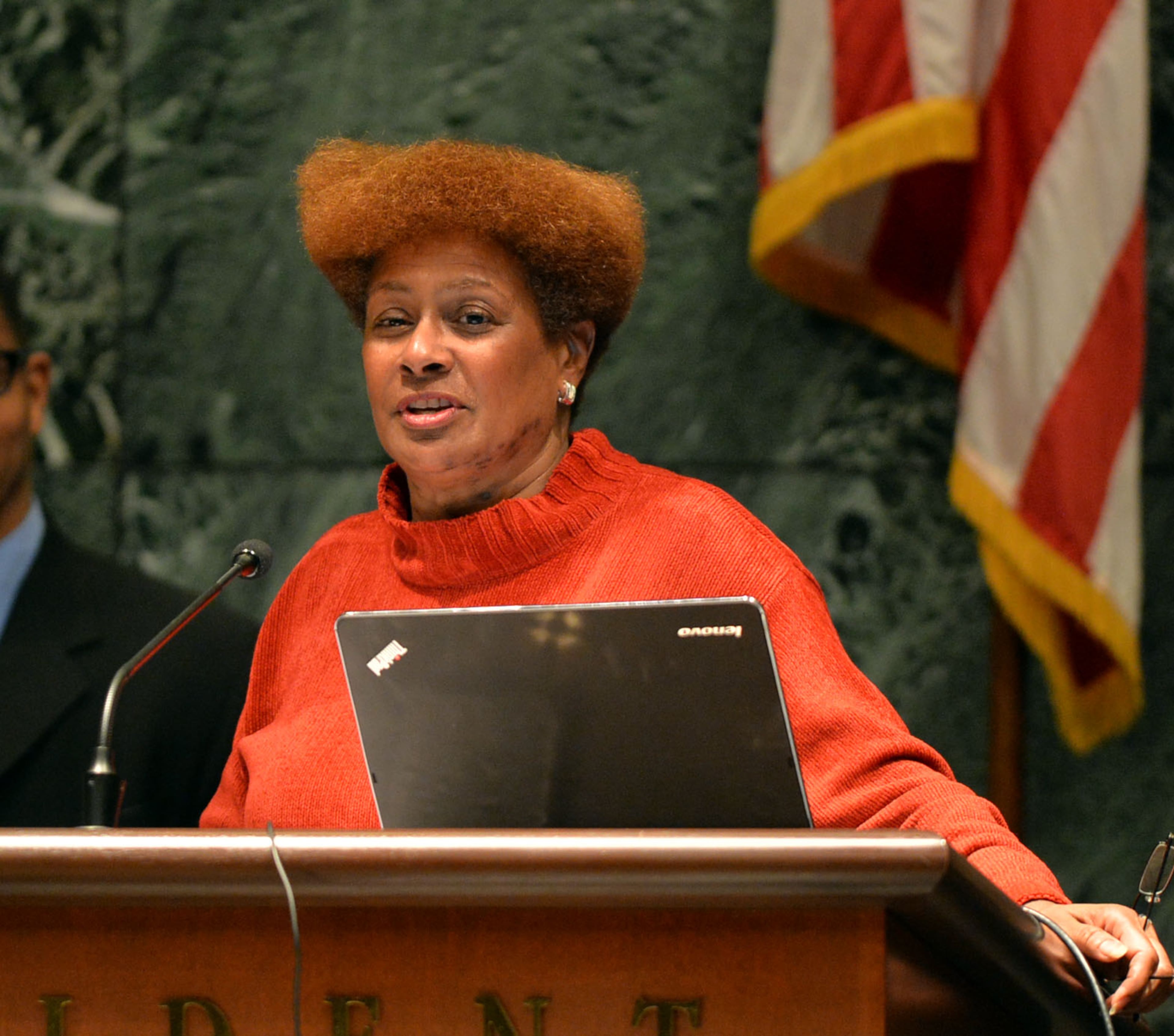Atlanta's lesson for the ethically challenged: Keep sloppy records
For the fourth time, Atlanta's internal ethics watchdogs have accused Councilwoman Cleta Winslow of tapping taxpayer money to fund her re-election campaign. Some variation of this city code violation has happened in each of Winslow's past three bids for office.

This time, the Ethics Office had only to confirm findings from a 2014 investigation by The Atlanta Journal-Constitution, which found that after getting caught driving drunk in her district, Winslow used public money to bolster her campaign in ways her unsuccessful challenger couldn't. The investigation was part of a larger story on local governments with poor controls over elected officials' spending. The AJC found Winslow paid homeless people less than minimum wage to do campaign work, paid a political ally tens of thousands of dollars to mow private lawns and repeatedly charged taxpayers for gasoline fill-ups.
Winslow's penalty this time, under a proposed settlement agreement with the Ethics Board: She'll pay a $3,000 fine — which is $1,000 more than she paid the last time the board caught her. And she'll receive a written reprimand for all to see, including her fellow council members. And she'll have to submit quarterly reports of her spending to the city's ethics office, essentially ensuring that she's not violating city code anymore.
If that seems light, given Winslow's track record, Ethics Officer Nina Hickson said there's a reason.
Winslow's records were a mess, and emails from the time period have been deleted, Hickson said. That prevented her from mounting a stronger case that might have led to heavier fines. Atlanta's Ethics Board can only fine officials up to $1,000 per violation.
Hickson said she's frustrated she can't do more. She's also abashed that her investigation took almost two years.

"I couldn't figure out a way to quantify what was what," Hickson told the AJC. "Essentially, it came down to what she would admit to, and what I could prove."
Those repeated gasoline charges of $30, $40, sometimes $70 at a time? Turns out Winslow solved the problem of her suspended driver's license by having a city employee, Marshall Thomas, chauffeur her to meetings and events in his Buick LeSabre, according to Hickson's 17-page case report and other records. Thomas admitted to doubling as a campaign coordinator.
Hickson also determined that the councilwoman spent $750 for 22 tickets to the West End Jazz Festival, and among those she invited were two people who she asked to "keep an eye on things" related to her campaign. (One of those people was the same man she paid to mow lawns.) She has since reimbursed the city $200 for eight of those tickets.

Winslow also wrote a $100 check from her campaign account to Shiloh Missionary Baptist Church, apparently a donation, when she attended an event there, Hickson found. The councilwoman later sought reimbursement from the city. Hickson said Winslow admitted that while she attended in her capacity as a councilwoman, she also passed out campaign literature and spoke about her reelection bid.
Hickson said she ran into some problems, though. There were no records laying out when Thomas was on the city's clock as opposed to working for his boss' campaign, nor did records describe when he was driving her to city events as opposed to campaign events.
She wanted to pull old emails, which might have revealed what kind of directives Winslow gave her staff. "During the investigation," Hickson wrote in her report, "the Ethics Office learned that emails had been deleted from the system and could not be retrieved."
The problem boiled down to an old email system used by council members, which allowed them to delete folders with archived emails. That system has since been replaced, Hickson said.
"The inability to retrieve these emails posed a substantial obstacle to the completion of this investigation," she wrote in her report.
She said she also couldn't track down any of the homeless people interviewed by the AJC and Channel 2 Action News, who Winslow turned into human billboards for her campaign. They told reporters they made $5 per hour to wear T-shirts emblazoned with Winslow's name while picking up trash and handing out campaign fliers.
Winslow admitted to paying $240 in wages to homeless people for times when they passed out fliers, Hickson said. And taxpayers paid a $68 bill to print up some of those T-shirts, the ethics officer's report said.
Winslow, a Democrat who has held the council's District 4 seat since 1994, has not said whether she will accept the proposed settlement agreement.



